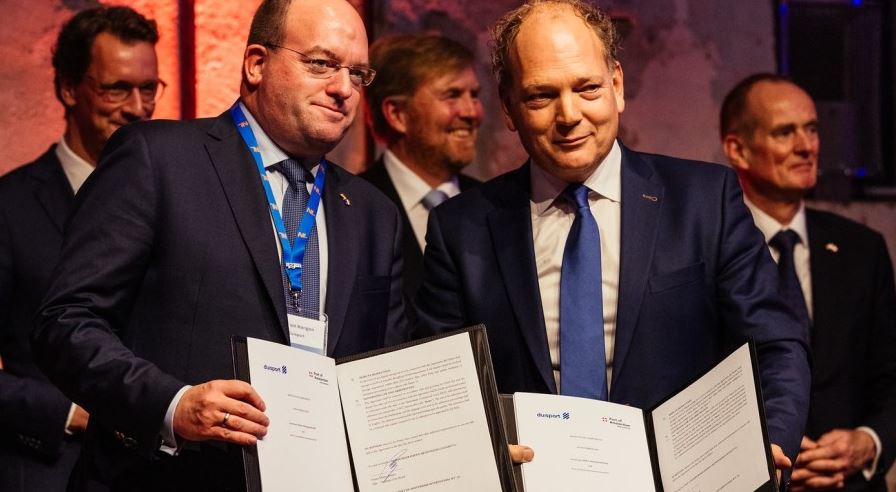The Netherlands – A memorandum of understanding (MoU) has been signed by German, Dutch, and Spanish ports to investigate the creation of an intra-European corridor for renewable hydrogen.
The Port of Amsterdam recently unveiled three groundbreaking agreements during the H2 Connecting Event in Duisburg. Presided over by His Majesty the King of the Netherlands, Willem-Alexander, the event aimed to strengthen collaboration between the Netherlands and Germany in the realm of renewable hydrogen. The agreements signed by the Port of Amsterdam align with these goals and aim to capitalize on existing partnerships with leading potential producers.
Intra-European hydrogen corridor
Memorandum of Understanding (MoU): Building on the established connection between the Port of Amsterdam and the Basque Country, this MoU extends collaboration to explore the development of an intra-European corridor for renewable hydrogen. Partnering with duisport, the aim is to supply Basque hydrogen to industrial offtakers in the Rhine-Ruhr region via the Port of Amsterdam, aligning with EU ambitions for intra-European corridors.
Joint Study Agreement: To bolster the Spanish-Netherlands-German renewable hydrogen corridor, Port of Amsterdam and duisport signed a Joint Study Agreement. This collaboration focuses on assessing technical and financial requirements, transport modalities, and infrastructure for a resilient supply chain between the ports of Amsterdam and Duisburg.
Framework Agreement: Signed with EnBW Energie Baden-Württemberg AG, Zenith Energy Terminals, and GasLog, this agreement aims to establish a green, liquid hydrogen connection through the Port of Amsterdam to EnBW facilities in Germany. Leveraging existing collaborations, the agreement contributes to securing renewable energy supply and actively participating in the decarbonization of the economy.
These agreements underscore Port of Amsterdam’s ambition to serve as a key destination for imported renewable hydrogen and derivatives while functioning as a transshipment hub to supply renewable energy to the German hinterland. The focus is on creating hydrogen and e-fuels corridors between production regions like the Basque Country, the UAE, Saudi Arabia, and Oman, and the Port of Duisburg.





